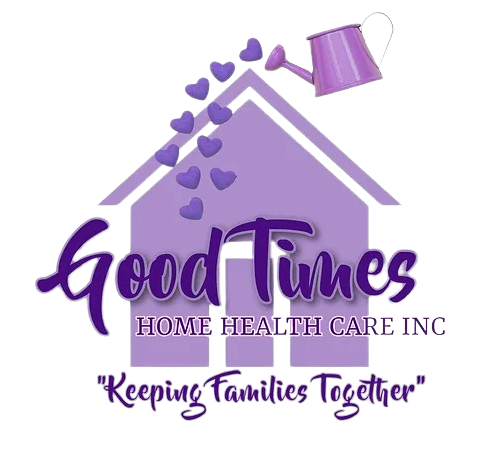Supports Elderly Abuse
Awareness & prevention
Good Times Home Health Care, we believe that our elders deserve to be treated with dignity, respect, and care. As advocates for the well-being of seniors, we are committed to raising awareness about elderly abuse and providing support to those who may be vulnerable.
Elderly abuse—whether physical, emotional, or financial—is a hidden crisis that affects too many of our seniors, and it is our mission to help bring an end to this injustice. Through compassionate caregiving, education, and community outreach, we strive to protect the elderly from neglect and harm.
By promoting Elderly Abuse Awareness, Good Times Home Health Care aims to foster safer environments for seniors and empower families with the knowledge to recognize and prevent abuse.
Elder Justice: https://www.justice.gov/elderjustice/find-help-or-report-abuse
www.paintthepurplecampaign.info
Warning signs of physical abuse
- Bruises, black eyes, welts, lacerations, or rope marks
- Bone fractures, broken bones, or skull fractures
- Open wounds, cuts, punctures, untreated injuries in various stages of healing
- Sprains, dislocations, or internal injuries/bleeding
- Broken eyeglasses/frames, physical signs of being subjected to punishment, or signs of being restrained
- Laboratory findings of medication overdose or under-utilization of prescribed drugs
- An older adult’s sudden change in behavior
- The caregiver's refusal to allow visitors to see or speak to an older adult alone
- An older adult’s report of being hit, slapped, kicked, or mistreated
Warning Signs of Emotional/Psychology abuse
- Being emotionally upset or agitated
- Being extremely withdrawn, non-communicative, or non-responsive
- Unusual behavior, such as sucking, biting, rocking
- Witnessing a caregiver controlling or isolating an older adult
- Exhibiting a change in sleeping patterns or eating habits
- Personality changes, such as apologizing excessively
- Depression or anxiety
- An older adult’s report of being verbally or emotionally mistreated
Warning Signs of Financial Exploitation
- Sudden changes in bank accounts or banking practices, including an unexplained withdrawal of large sums of money by a person accompanying the older adult
- The inclusion of additional names on an older adult’s bank signature card
- Unauthorized withdrawal of the older adult’s funds using their ATM card
- Abrupt changes in a will or other financial documents
- Unexplained disappearance of funds or valuable possessions
- Provision of substandard care or bills left unpaid despite the availability of adequate financial resources
- Discovery of a forged signature for financial transactions or for the titles of the older adult’s possessions
- Sudden appearance of previously uninvolved relatives claiming their rights to an older adult’s property or possessions
- Unexplained sudden transfer of assets to a family member or someone outside the family
- The provision of services that are not necessary
- An older adult’s report of financial exploitation
- Unexplained credit card charges
Warning Signs of Neglect & Abandonment
- Dehydration, malnutrition, untreated bed sores, and poor personal hygiene
- Unattended or untreated health problems
- Hazardous or unsafe living conditions/arrangements (e.g., improper wiring, no heat, or no running water)
- Unsanitary and unclean living condition (e.g., dirt, fleas, lice on person, soiled bedding, fecal/urine smell, inadequate clothing)
- The desertion of an older adult at a hospital, a nursing facility, or other similar institution, or a shopping center or other public location
- An older adult’s report of being neglected or abandoned
- Lack of food in the refrigerator or cupboards
Warning Signs of Sexual Abuse
- Bruises around the breasts or genital area
- Unexplained venereal disease or genital infections
- Unexplained vaginal or anal bleeding
- Changes in an older adult’s demeanor, such as showing fear or becoming withdrawn when a specific person is around
- Evidence of pornographic material being shown to an older adult with diminished capacity
- Blood found on sheets, linens or an older adult’s clothing
- An older adult’s report of being sexually assaulted or raped (https://www.justice.gov/elderjustice/red-flags-elder-abuse)

